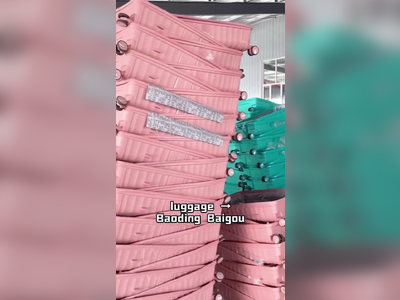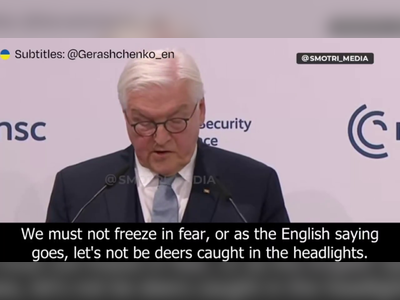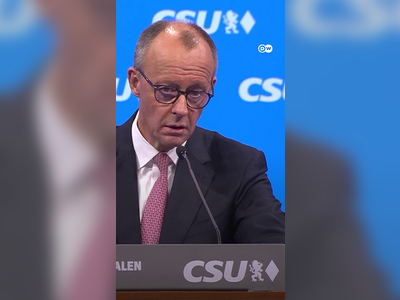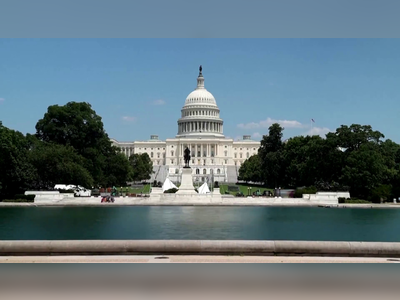
Iran Increases Production of Nearly Weapons-Grade Uranium by 49 Percent
The International Atomic Energy Agency reports a significant rise in Iran's uranium production amid ongoing nuclear negotiations.
Iran has reported a significant increase in its production of nearly weapons-grade uranium, rising by 49 percent during ongoing nuclear negotiations with the United States.
According to a report by the International Atomic Energy Agency (IAEA), Iran now possesses almost 409 kilograms of uranium enriched to a purity of 60 percent, which is a critical threshold for potential weapons development.
It is indicated that approximately 42 kilograms of this uranium could be sufficient for a nuclear weapon if further enriched to the level of 90 percent.
The IAEA has also raised concerns regarding Iran's cooperation, citing significant hindrances to its investigations.
IAEA Director General Rafael Grossi noted that Iran has previously concealed nuclear activities and materials at three locations from the agency.
The IAEA reported that Iran has either failed to respond to inquiries or provided unconvincing explanations, and there are indications that evidence may have been removed.
Grossi highlighted these issues in previous reports, and the recent findings are expected to inform discussions at a forthcoming meeting of the IAEA's Board of Governors.
This board has the potential to relay the situation to the United Nations Security Council, given the violations of inspection agreements by Iran.
Nations including Germany, the United Kingdom, and France have suggested the possibility of renewed sanctions in response to these developments.
Since April, the United States has been engaged in negotiations with Iran, seeking to significantly curtail its nuclear program amid fears that the Islamic Republic could develop nuclear weapons capabilities.
Iran has consistently denied these allegations, asserting its right to the peaceful use of nuclear energy.
The situation is further complicated by the U.S. withdrawal from the Joint Comprehensive Plan of Action (JCPOA) in 2018, during Donald Trump's presidency, which had originally imposed restrictions on Iran’s nuclear program in exchange for sanctions relief.
Following this withdrawal, Iran has similarly stepped away from compliance with the agreement.
In Israel, Prime Minister Benjamin Netanyahu's office has responded to the IAEA's findings, labeling them a clear warning signal regarding Iran’s steadfast determination to advance its nuclear weapons program.
The report reinforces Israel's long-held assertion that Iran's nuclear ambitions lack any peaceful justification, urging the international community to take action to prevent Iran from furthering its potential nuclear capabilities.
According to a report by the International Atomic Energy Agency (IAEA), Iran now possesses almost 409 kilograms of uranium enriched to a purity of 60 percent, which is a critical threshold for potential weapons development.
It is indicated that approximately 42 kilograms of this uranium could be sufficient for a nuclear weapon if further enriched to the level of 90 percent.
The IAEA has also raised concerns regarding Iran's cooperation, citing significant hindrances to its investigations.
IAEA Director General Rafael Grossi noted that Iran has previously concealed nuclear activities and materials at three locations from the agency.
The IAEA reported that Iran has either failed to respond to inquiries or provided unconvincing explanations, and there are indications that evidence may have been removed.
Grossi highlighted these issues in previous reports, and the recent findings are expected to inform discussions at a forthcoming meeting of the IAEA's Board of Governors.
This board has the potential to relay the situation to the United Nations Security Council, given the violations of inspection agreements by Iran.
Nations including Germany, the United Kingdom, and France have suggested the possibility of renewed sanctions in response to these developments.
Since April, the United States has been engaged in negotiations with Iran, seeking to significantly curtail its nuclear program amid fears that the Islamic Republic could develop nuclear weapons capabilities.
Iran has consistently denied these allegations, asserting its right to the peaceful use of nuclear energy.
The situation is further complicated by the U.S. withdrawal from the Joint Comprehensive Plan of Action (JCPOA) in 2018, during Donald Trump's presidency, which had originally imposed restrictions on Iran’s nuclear program in exchange for sanctions relief.
Following this withdrawal, Iran has similarly stepped away from compliance with the agreement.
In Israel, Prime Minister Benjamin Netanyahu's office has responded to the IAEA's findings, labeling them a clear warning signal regarding Iran’s steadfast determination to advance its nuclear weapons program.
The report reinforces Israel's long-held assertion that Iran's nuclear ambitions lack any peaceful justification, urging the international community to take action to prevent Iran from furthering its potential nuclear capabilities.
Translation:
Translated by AI
AI Disclaimer: An advanced artificial intelligence (AI) system generated the content of this page on its own. This innovative technology conducts extensive research from a variety of reliable sources, performs rigorous fact-checking and verification, cleans up and balances biased or manipulated content, and presents a minimal factual summary that is just enough yet essential for you to function as an informed and educated citizen. Please keep in mind, however, that this system is an evolving technology, and as a result, the article may contain accidental inaccuracies or errors. We urge you to help us improve our site by reporting any inaccuracies you find using the "Contact Us" link at the bottom of this page. Your helpful feedback helps us improve our system and deliver more precise content. When you find an article of interest here, please look for the full and extensive coverage of this topic in traditional news sources, as they are written by professional journalists that we try to support, not replace. We appreciate your understanding and assistance.











